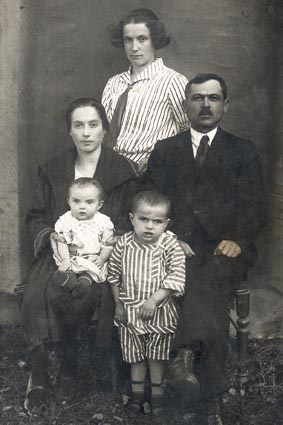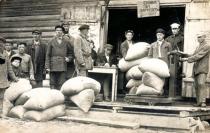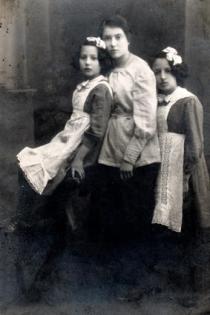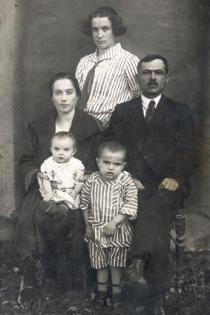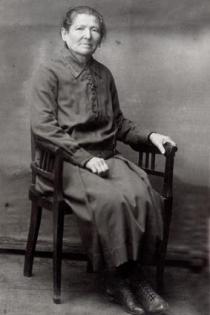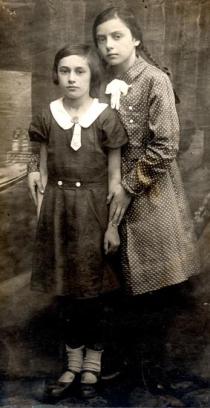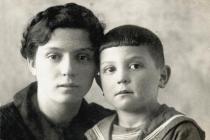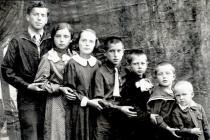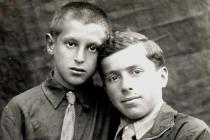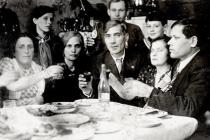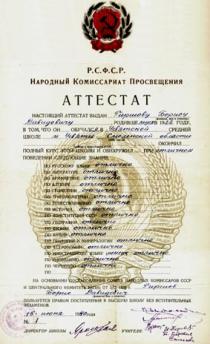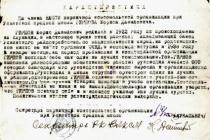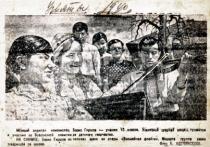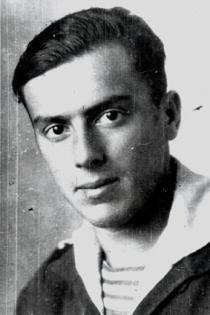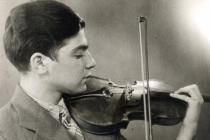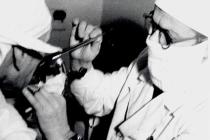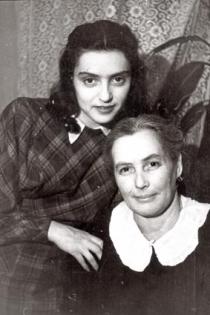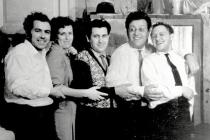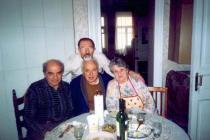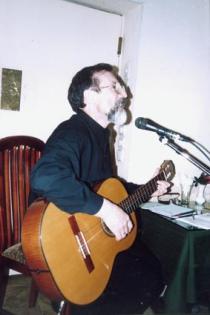This photograph was taken in Usvyaty in 1920s.
You can see here my relatives, my mother’s sister Mira, my little sister (a baby) and me.
My mum Raissa Isaacovna Girshova (Rohl-Leye Brook) was born in 1900 in Usvyaty, too. Mum was a beautiful woman. Before her marriage she lived in Vitebsk together with her sisters.
Her sister Mira and brother Lev lived in Vitebsk (in Belarus). There Mum worked as a shop assistant. She told me about strictness of the senior clerk at that time in compare with later period of time.
At that time she was a girl, nevertheless he demanded much of her.
After her marriage Mum continued working. She worked at the factory producing soft drinks, kvass and lemonade. Mum was responsible for washing bottles.
By the way at that time manufacturers used to hammer corks in the bottles. During my childhood parents (both father and mother) worked all the time.
Parents finished only primary school, so they were able to read and count, but nothing more. But they could do it both in Russian and in Yiddish. Both Yiddish and Russian were their mother tongues; they could speak and write in both languages.
The Brooks, family of my mother lived in poverty, therefore when Mum grew a young girl, she was sent to work as a shop assistant to Vitebsk. My father got to know about her (possibly he visited Vitebsk at that time, but I am not sure).
Father was rather active young man and he liked my mother. When she arrived in Usvyaty from Vitebsk (probably to visit her parents), they decided to get married. Their wedding was a real Jewish ceremony: chuppah, etc.
Later in my life I was present at different Jewish weddings, and I know well what it is to get married according to Jewish Tradition.
Parents did not wear Jewish traditional clothes, they used to dress like all inhabitants of our settlement.
As both father and mother worked, they earned enough money to support themselves and their children. We were provided for better than families of most of my coevals.
I often invited them home and regaled them with sandwiches. It happened during hard times and lean years.
Mother was more educated, than father: she used to read books, often visited theatre. A theater company from Leningrad usually came to Usvyaty on tour in summer.
Their drama performances took place in the Usvyaty House of Culture. Mother took me there with her. I remember we watched Intrigue and Love by Schiller, and Romeo and Juliet.
Father was an active member of Jewish community; he used to take me to synagogue with him; he sent me cheder (besides my secondary school), therefore I was able to read and write in Yiddish.
I read Hebrew texts only in the prayer book, I could not speak Hebrew. At home we observed kashrut not strictly, though I remember my mother shouting 'Don't take it, it's dairy.'
We used to eat chicken. In our community there was shochet, so we bought only kosher meat. It happened not because parents were religious, but because public opinion played dominant role.
As our settlement was Jewish, people noticed, for example Yosef going out to buy meat. That was why people held dear their reputation. When Mum became an old woman, she did not observe kashrut at all: I consider it to be confirmation that she did not observe it being young.
We celebrated Jewish holidays, we ate hamantashen, kneidl, kugl, matzah for Pesach, etc. We used to arrange Seder for Pesach.
